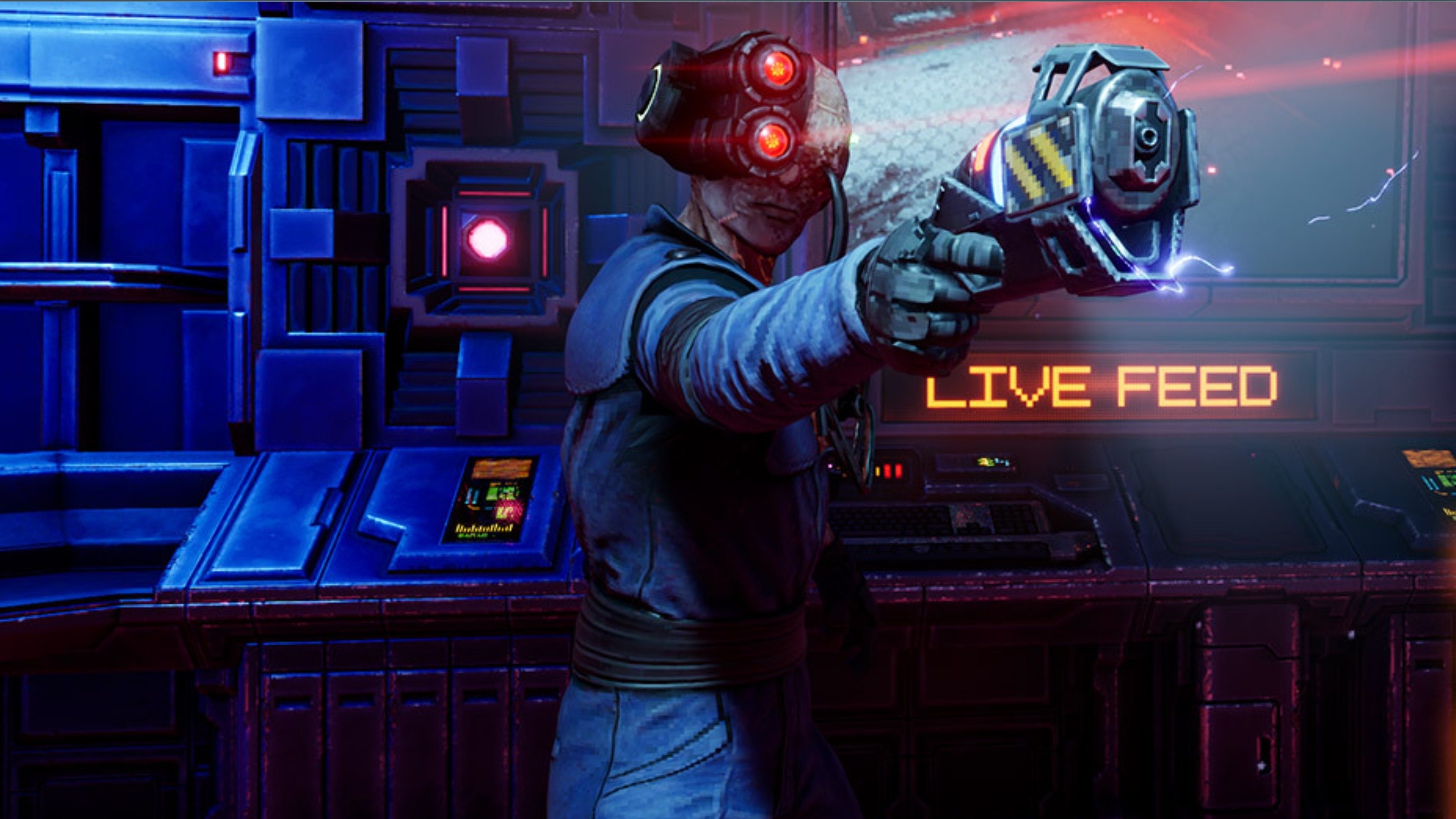Nightdive thought it was 'going to get grilled' about the lack of hand-holding in System Shock remake, but players loved it
"People described it as an atrophied part of their brain starting to wake up again."

PC Gamer's 30th anniversary issue is on-sale today, and includes a slew of major interviews with some of the creatives that have shaped the most important games in history. One of those is System Shock, and Warren Spector told PCG's editor Robert Jones his major contribution was to stop "it many times from getting killed." The same roundtable also included Larry Kuperman and Stephen Kick of Nightdive Studios, which developed the recent (excellent) remake, who had an interesting observation to make about that game's reception.
Part of its nature as an immersive game was that System Shock didn't hold players' hands: it gave them objectives, sure, but then it's up to you to work out where you need to go and what to do. It avoids things like the breadcrumb trails so pervasive in almost every major title now, something that Nightdive found resonated with the contemporary audience in its remake.
"One of the big surprises that we found after releasing the game was that because we stuck so closely to the original mechanics, and just the formula, we found a lot of people praising us for not holding their hands; for not including waypoints and a mission point and objective markers and stuff like that," says Stephen Kick.
"The surprise was: we originally thought that we were going to get grilled on that pretty hard, because it’s become such a standard and staple in games these days. The most surprising thing for us was that people described it as an atrophied part of their brain starting to wake up again as a result of playing System Shock, because it actually trusted them, and it respected them. And it made them think again, while playing the game. As much as I would like to take credit for that–you know, it’s a direct translation of what’s in the original."
"To Stephen’s point, one reason we didn’t have waypoints in System Shock is because, often, you didn’t have a clear path," says Paul Neurath, who worked on the original. "There were different ways you could go through. Creating a waypoint would artificially tell a player, "No, no, no. We want you to take this particular path," where that wasn’t the best path or the path that would matter to a player, depending on their play style.
"So I think that’s an interesting example where we did something that wasn’t particularly standard, and today it certainly is pretty non-standard. It’s not the way a lot of games continue today to do it. And I don’t know if you look at that as a good thing or a bad thing. But I’m proud that the team took that approach, even if that’s not the standard way to do it these days."
The full interview contains much more chat about System Shock and its remake, but that's far from the only classic this issue of PCG covers, with exclusive access to Nightdive's upcoming remaster of Star Wars: Dark Forces.
Keep up to date with the most important stories and the best deals, as picked by the PC Gamer team.

Rich is a games journalist with 15 years' experience, beginning his career on Edge magazine before working for a wide range of outlets, including Ars Technica, Eurogamer, GamesRadar+, Gamespot, the Guardian, IGN, the New Statesman, Polygon, and Vice. He was the editor of Kotaku UK, the UK arm of Kotaku, for three years before joining PC Gamer. He is the author of a Brief History of Video Games, a full history of the medium, which the Midwest Book Review described as "[a] must-read for serious minded game historians and curious video game connoisseurs alike."

